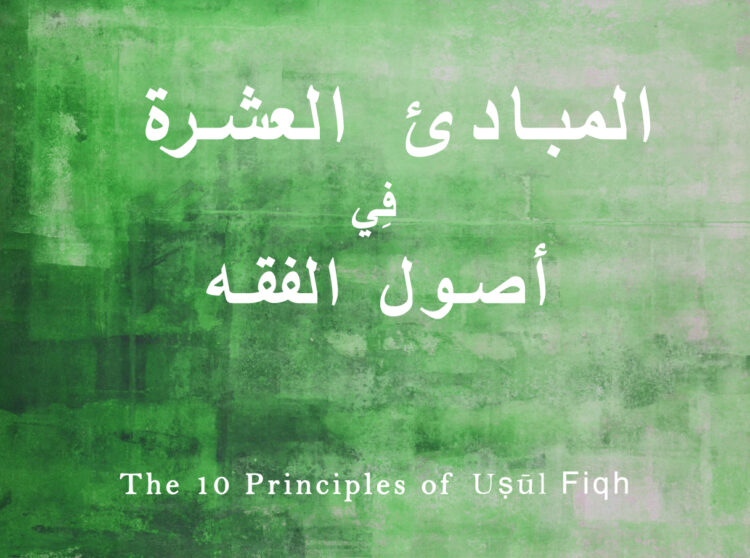Al-Mabādīy’at al-ʽAšharah are the ten fundamentals which every student should know before delving into a particular subject. This helps in knowing what it is about and what can be achieved from the subject.
Indeed the fundamentals of every science are ten:
The definition, the subject, and the fruits,
Its merit, relationship and founder,
The name, basis, and ruling of the lawgiver,
And the legal cases. Though some is sufficient
The one who obtains it all gains nobility.
- Definition
It is a science of decisive rules and principles which are used to derive jurisprudence and rulings from the main sources of Islamic Law. - Subject
Principles in extrapolating legal rulings based on proofs found in the Primary and Secondary sources like Qurʼān, Hadith, Qiyas and Ijma. - Fruit
The ability to know the origin of rulings and how to deduct rulings from the sources accurately so that one can call the halal halal, or the fardh fardh. - Merit
One saves himself from misinterpreting the Qurʼān and Sunnah and the rulings within. - Relation to other disciplines
It is the base of the Šharī’ah and is considered a source for other sciences. - Founder
Imam Abu Ḥanifa and his students laid out many principles, as well as Imam Shafiʼ in his Ar-Risāla. However, truly the sources lie at the time of the Prophet ﷺ. Principles which we can take from him ﷺ, and from principles like when Muʼādh ibn Jabal رضي الله عنه was sent to Yemen and he used Ijtihād. - Name
The Principles of Jurisprudence - Sources
Qurʼān, Sunnah and Scholarly consensus based on logical reasoning. - Ruling
It is Fardh Kifāya for scholars to study this science. - Purpose
It allows Muslim scholars to deduct rulings in their intended form using universal principles, or at least getting to the truth as close as possible.
Foundational works in Uṣūl Fiqh:
- Usūl e Shāshi
- Nūr Al Anwār
- Muntakhub Al Husāmi
- Nasafi
- Sharh al-Waraqat by al-Hattab
- al-Taqrib wa al-Irshad by al-Baqillani
- Ar-Risala by Imam Shafi’
